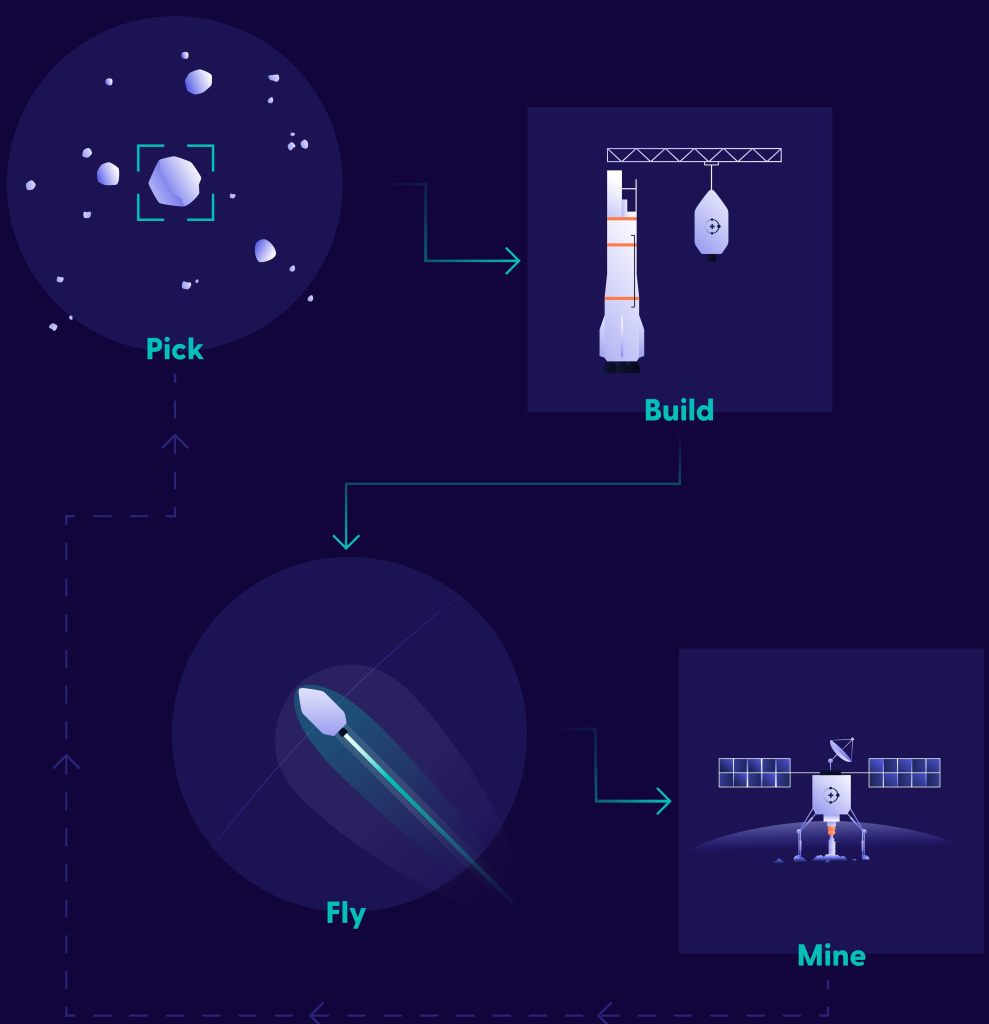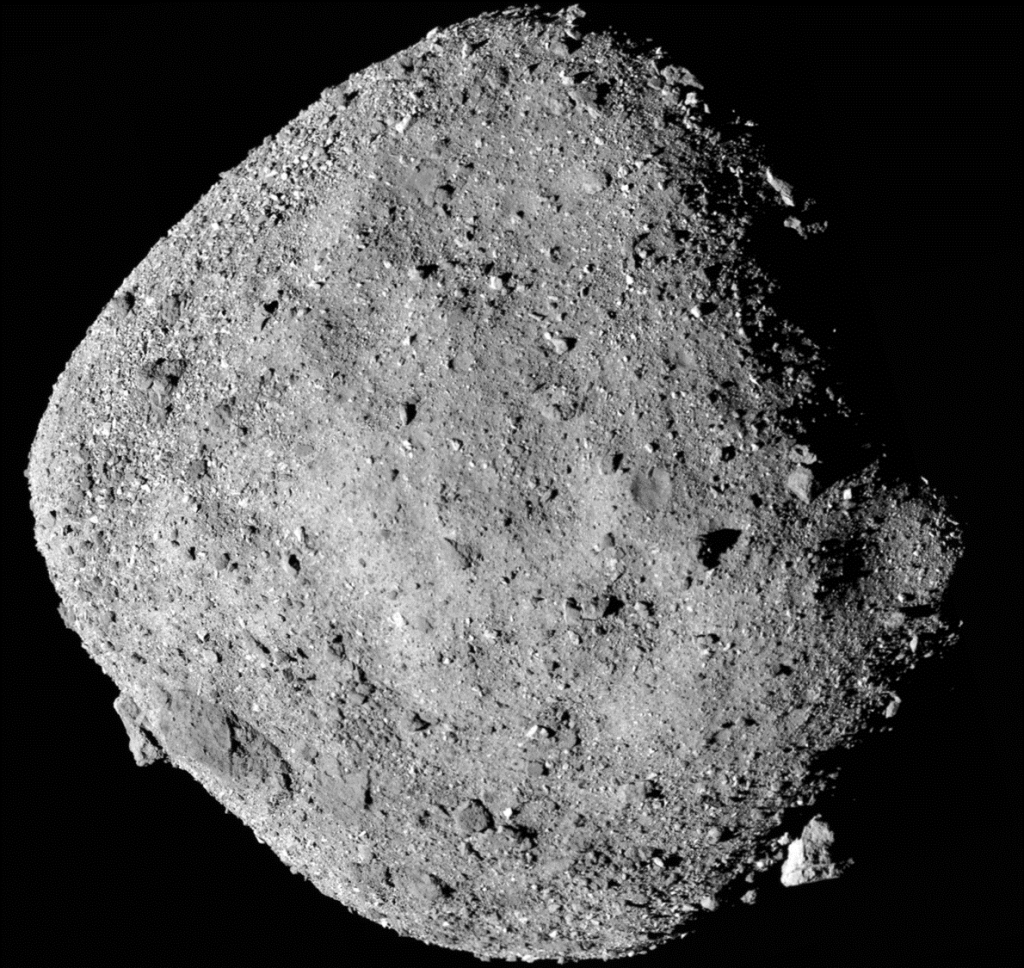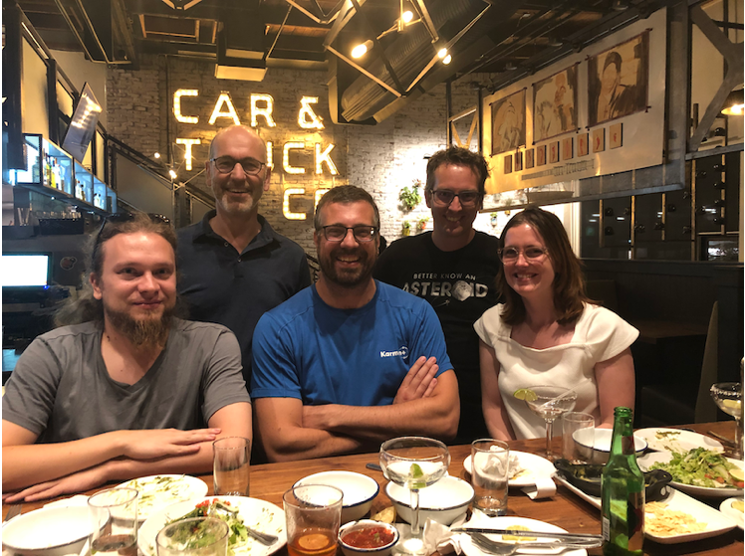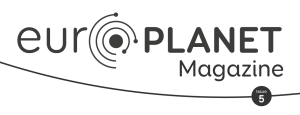Planetary Perspectives – A Planetary Scientist Turned Asteroid Miner
This edition’s ‘Planetary Perspectives‘ interview with Dr Lauri Siltala has been contributed by J D Prasanna Deshapriya, Hans Huybrighs, Peter McArdle, and Ottaviano Rüsch of the Europlanet Early Career (EPEC) Future Research Working Group. It is the latest in a series of conversations by EPEC, ‘Industry or Academia?’, which aim to gather insights from people who have had success in both sectors.
Read article in the fully formatted PDF of the Europlanet Magazine.
Asteroid mining is an exciting field in the exploration of space. Confined to the realm of science fiction until recently, it is now the central idea of multiple start-up companies. As planetary scientists, we’ve been wondering what the advent of asteroid mining will mean for our research field and whether it could produce new job opportunities for us. We spoke to Dr Lauri Siltala, a planetary scientist working for Karman+, one of the start-ups aspiring to make a breakthrough in asteroid mining. Lauri tells us that, currently, observational astronomy is a key skill that asteroid mining companies are looking for – and that the set of desirable planetary science skills will keep growing!
Could you tell us about your career as a planetary scientist and how it got you to your current job?
I completed my PhD in astronomy at University of Helsinki in December 2021. Since then, I have been working as an asteroid characterisation specialist at Karman+, an asteroid mining start-up company. In my role, I assess possible target asteroids for the mining operations of the company. I have had a long-term interest in asteroid mining and was fortunate enough to be in the right place at the right time. Towards the end of my PhD, my advisor was contacted by Karman+ regarding a science project. He put me in touch with them and, after a short application process, I was hired! Karman+ was based in Europe but recently moved to the US due to a more favourable legal and economic environment for space mining companies. However, I have the flexibility to work remotely from home, in Finland. Currently, I am the only planetary scientist in the company, which is made up of seven other employees.

Which planetary science skills will be most relevant for the field of asteroid mining?
At present, the most relevant skills are those linked to the observational astronomy of asteroids, such as spectroscopy, interpreting light curves and shape modelling. In the future, asteroid mining missions will likely require a variety of instrumentation, so a wider variety of planetary science skills will be needed. Some of those skills will be remote sensing and analysis of in-situ samples. Asteroid science is a very large field and it is unlikely that asteroid mining companies will have all of the planetary science skills in-house. Instead, I expect that the asteroid mining industry will rely on academia to cover some of the fields. We are already seeing close collaborations develop between the asteroid mining industry and academia.

What advice do you have for early career planetary scientists who are interested in joining the asteroid mining industry?
Asteroid mining is a relatively young industry and, so far, none of the asteroid mining companies have succeeded. Although asteroid mining is a risky business, it is an exciting field to work in. I am confident that Karman+ will succeed because of its key success drivers: pragmatism and focus. As with many other industries, networking has been a key factor in my own success. Attending conferences and space industry events, as well as directly contacting prospective employers, are all ways in which early career scientists should aim to build up a network.
Is going back to academia an option from your current position?
My current role allows me to publish research in academic journals and I am also maintaining my ties with academia as a visiting researcher at the University of Helsinki. So, I expect that it would be possible for me to return to academia in the future, should I want to.

Conclusion
Asteroid mining is a developing industry with many exciting possibilities. This industry comes with some risk for those aspiring to a career in asteroid mining. However, as Lauri reports, it is a great field to work in, with a combination of exciting scientific and technical work, flexibility and the opportunity to be part of a revolutionary new industry. As with many careers, development of key skill sets and a network of cont acts will be critical for early career researchers hoping to pursue a career in this exciting industry. With the potential for growth, this industry could become a major employer of planetary scientists in the future.
Find out more about Karman+ at: https://karmanplus.com
Read other ‘Industry or Academia’ Interviews.


